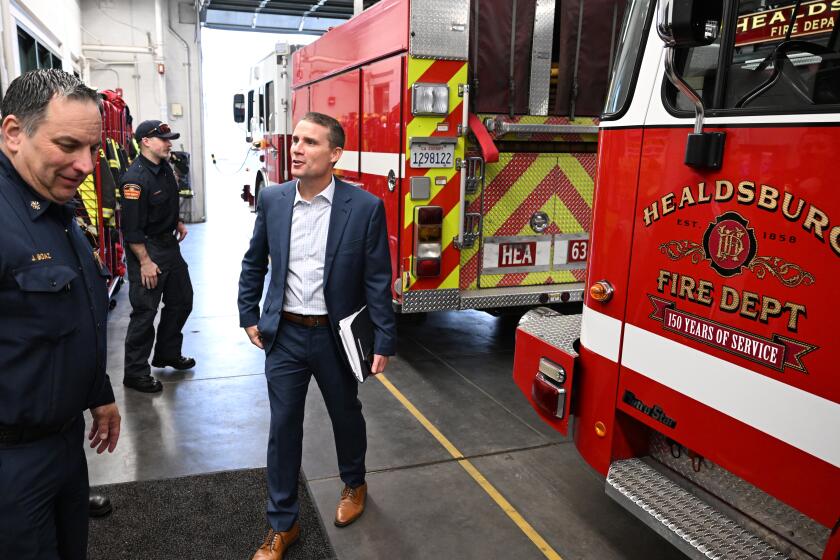Democratic Party chair Rusty Hicks assailed as outsider in bid for North Coast Assembly seat
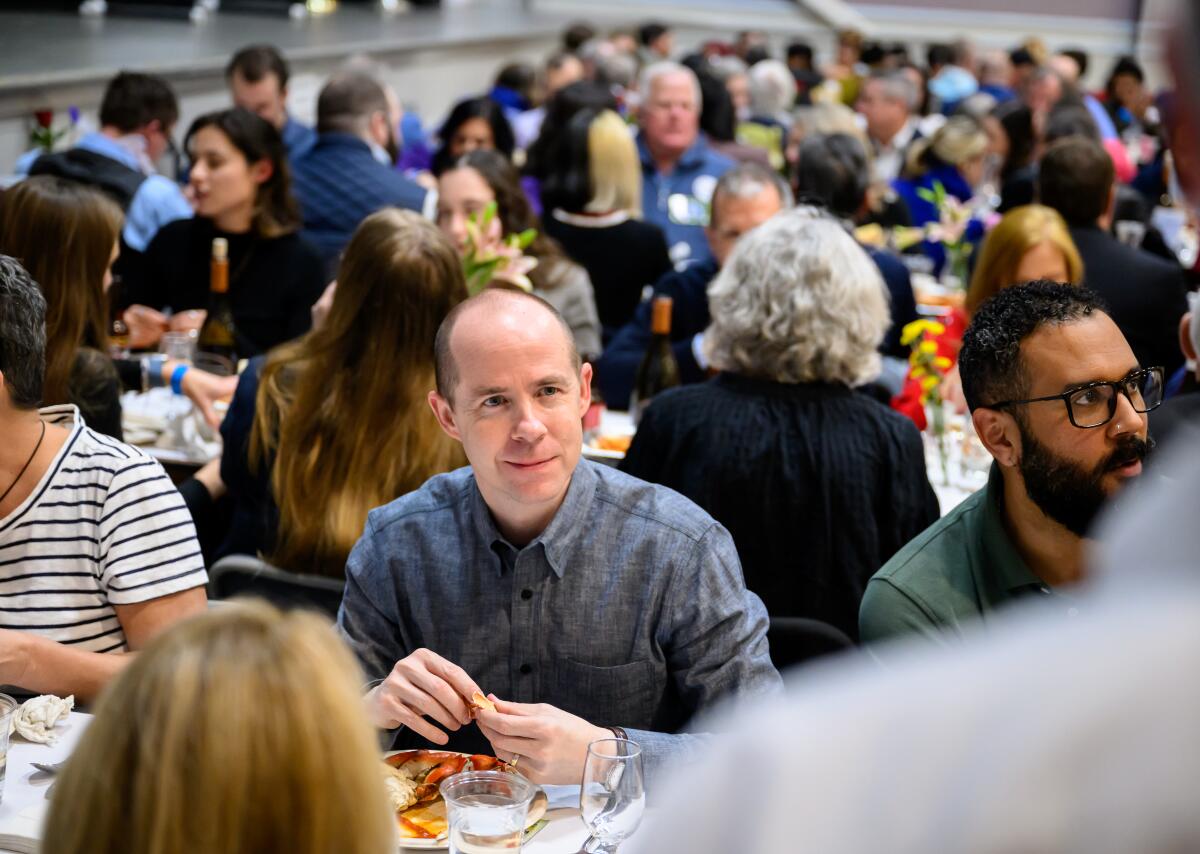
- Share via
SANTA ROSA, Calif. — At first glance, the Sonoma County Democratic Party’s 36th annual Crab Feed seemed the political schmoozefest it has been for nearly four decades.
For $70, Sonoma County residents could “bump elbows with elected officials” over a North Coast meal of Dungeness crab, salad and pasta served with locally produced red and white wines. But Democratic discord simmered beneath the pleasantries at the Feb. 23 decapod dinner.
The intraparty squabble involves who will replace Assemblymember Jim Wood (D-Healdsburg), who is retiring from his North Coast seat two years before most people expected. The shocking November announcement that Wood wouldn’t seek reelection for his final term after 10 years in the statehouse sent candidates scrambling to prop up campaigns with only a few months to raise money and support before Tuesday’s primary.
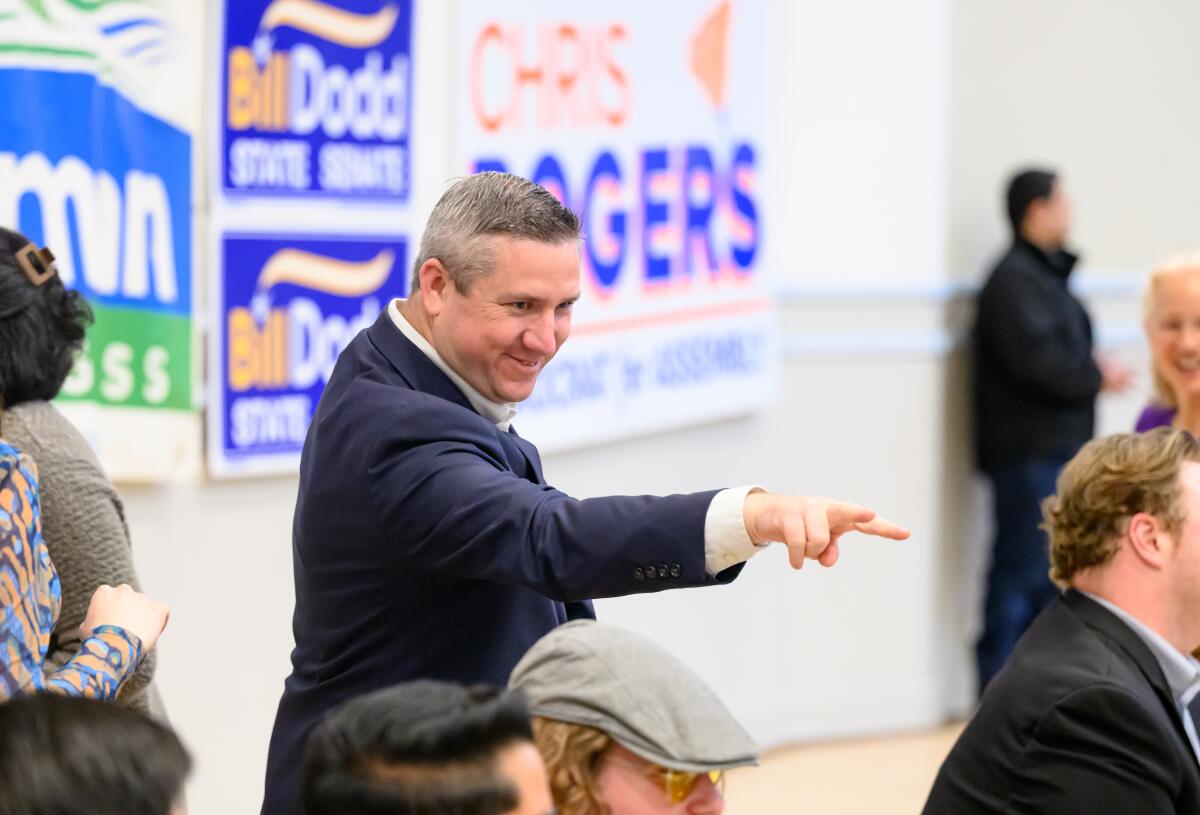
Three top candidates quickly emerged: California Democratic Party Chair Rusty Hicks, Healdsburg City Councilmember and nonprofit executive Ariel Kelley, as well as former Santa Rosa mayor and current Councilmember Chris Rogers.
Disagreement among local Democratic leaders over who should represent Assembly District 2 — a left-leaning, geographically diverse region stretching from Santa Rosa to the Oregon border — has transformed the race into one of the most expensive and divisive in local history.
The Democratic trio are competing for a top-two placement in the March 5 primary, likely alongside the only Republican in the race who conceivably has enough GOP votes in the district to send him to the November general election. A majority of the district’s voters are registered Democrats, so the Democratic candidate who makes it through the primary has a good chance of winning in November.
The district spans five counties — part of Sonoma plus all of Mendocino, Trinity, Humboldt and Del Norte — a roughly seven-hour drive from top to bottom. It takes in 307,000 voters, many of them working-class, across its rural geography. Many residents contend with a shortage of affordable housing, well-paying jobs and limited healthcare access. The region faces growing environmental threats, including deadly wildfires exacerbated by climate change.
The intensive jockeying among candidates to gain traction with voters was evident at the crab event.
“Vote Chris Rogers” buttons competed with “ARIEL” stickers, while Hicks sponsored a table prominently positioned at the front of the hall, where he sat across from Wood and Assembly Speaker Robert Rivas (D-Hollister).
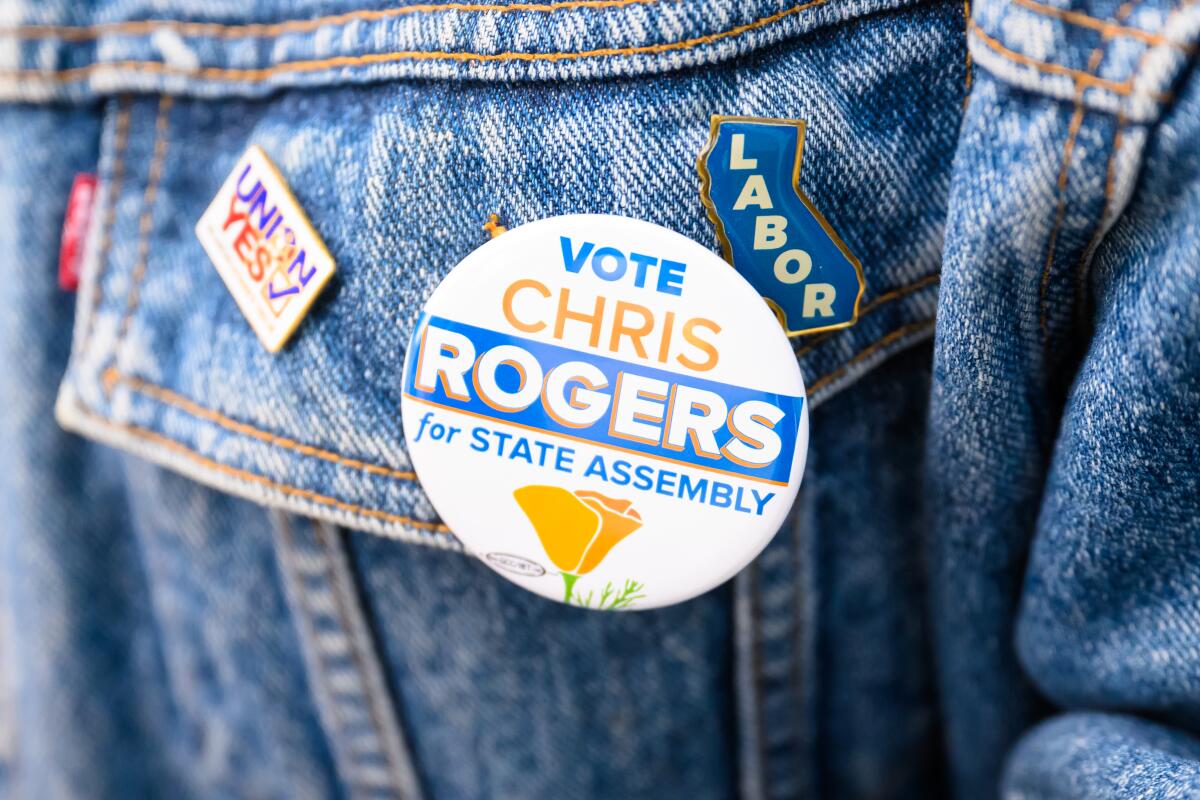
Much of the political brouhaha revolves around Hicks, 44, who moved to the region from Los Angeles only a few years ago — a blip in time by some local standards — but who brings with him considerable funding and clout. He is endorsed by outgoing Assemblymember Wood, Gov. Gavin Newsom, U.S. Sen. Laphonza Butler, veterans groups and a long list of powerful statewide labor organizations, among others.
Hicks is proving a formidable candidate. He’s a Texas native and Afghanistan War veteran who was president of the Los Angeles County Federation of Labor before being elected Democratic Party chair in 2019. His reputation as a skilled strategist and even-keeled leader in the labor movement helped him dominate that race as the party looked to correct course in the aftermath of an internal sexual misconduct scandal.
His campaign messaging centers on safeguarding district jobs, creating more affordable housing options and expanding access to healthcare in a region with few medical clinics. He has also emphasized environmental preservation, an issue that resonates in a region home to towering redwoods and vast state and national parkland.
“I’m running because I’ve got a long track record of delivering real results for real people,” Hicks said.
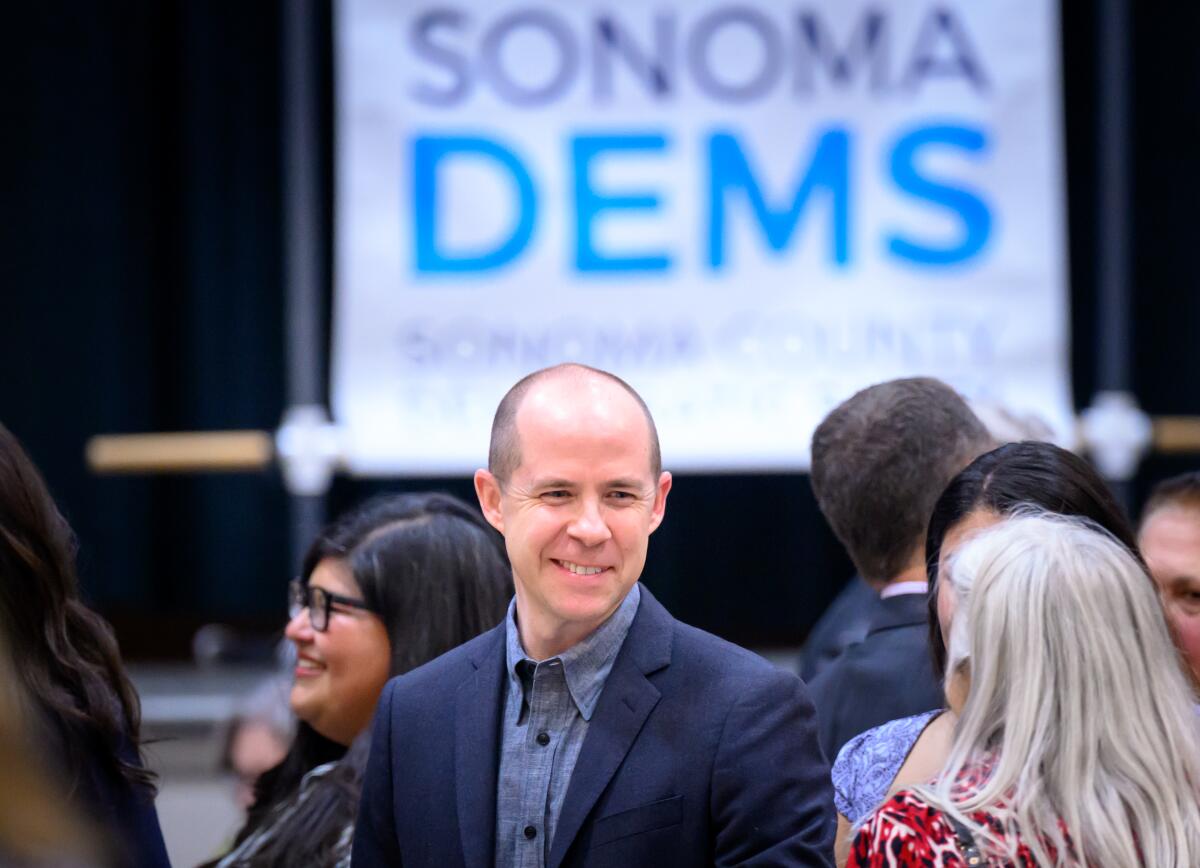
His opponents describe him in a different light.
Skeptics accuse Hicks of carpetbagging his way from Los Angeles to Humboldt County with ambitions to run for office, and have blasted his long list of donations from Southern California and Sacramento as evidence that he lacks connections to the people he wants to represent.
He’s also faced criticism for maintaining his influential position as party chair while campaigning for Assembly. Hicks said he has suspended his pay and benefits during the race and pledged to step down if elected.
Hicks said he and his wife bought their home in Arcata in Humboldt County in 2021 after falling in love with the North Coast while he was running for party chair. His campaign, he said, is “funded by individuals and workers and the unions that represent them,” a coalition that many backing his candidacy say no Democrat should be criticized for.
Hicks faces a strong opponent in Kelley, 41, a former mayor of Healdsburg, whose endorsements include local government officials and statewide groups dedicated to electing more women to office and expanding access to safe abortion services.
A political action committee supporting Kelley — largely funded by her sister, who poured at least $200,000 into the PAC — has sponsored ads accusing Hicks of covering up sexual harassment in the Democratic Party, an allegation he and his proponents angrily deny. His campaign sent local TV stations cease-and-desist letters warning them against continuing to run ads that Hicks maintains are “patently false.”
Hicks has clapped back with criticism of Kelley’s investments in the oil industry and questioned her connections to a local developer who recently donated $50,000 to the political action committee.
“It’s unfortunate when some candidates and their supporters conclude that they can no longer talk about their own record or run on their own record and decide to lie about mine,” Hicks said.
Kelley said she doesn’t communicate with the PAC or her sister about its strategy, and agrees the negative campaigning is unhelpful. She said her father died last year and left her a trust that held investments “in a number of industries,” and that she plans to divest from those in oil and gas.
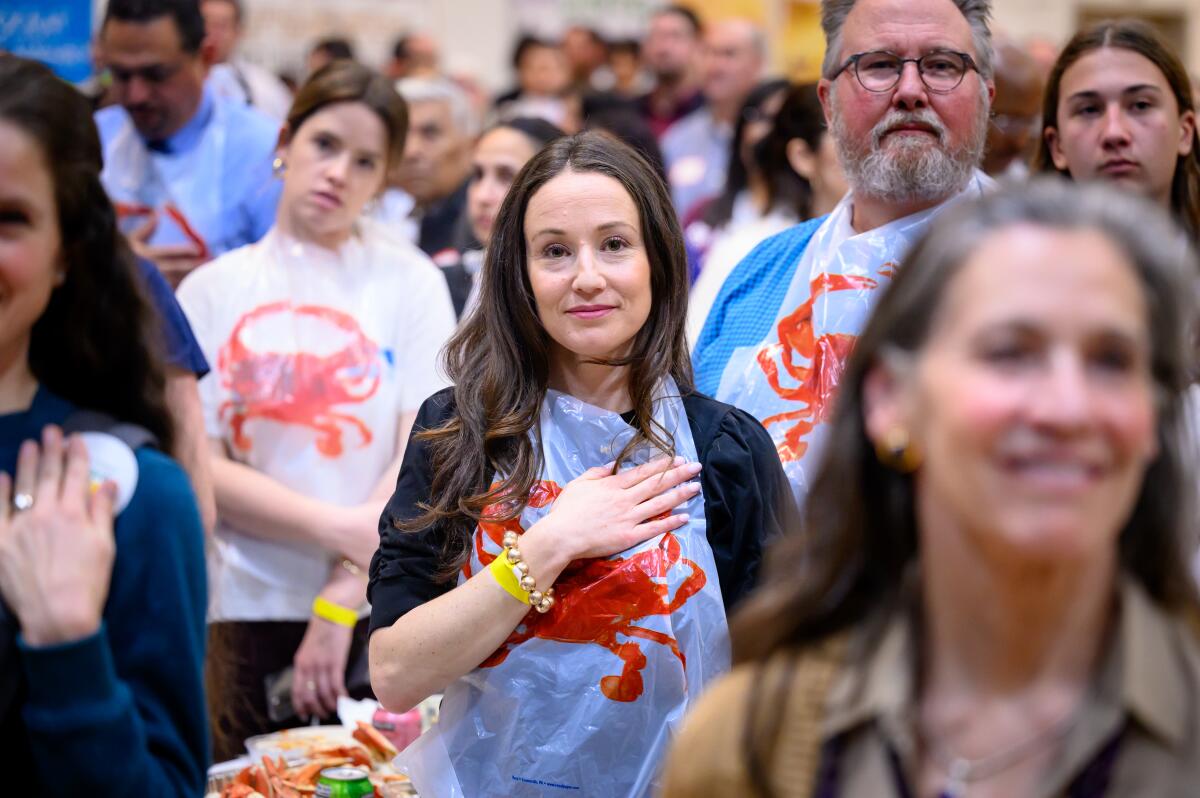
She’s called the attacks “completely baseless” and a distraction from real issues facing district voters, such as the need for paid family leave for rural families, ensuring access to reproductive healthcare, improving housing affordability and reducing homelessness.
“I’m really focused on just talking about my record of delivering. Because it’s a very strong record of delivering for this community, on homelessness, on wildfire prevention, on housing, healthcare access,” she said.
Rogers, 36, who has also mounted a fierce campaign, has called for his opponents to end the “mud-slinging,” even as he’s expressed many of the same concerns about Hicks’ fundraising strategies.
Raised in Sonoma County, Rogers worked for a decade as an aide to congressional and state legislators in the district before launching his career in local politics. He contends he is most qualified to represent the district after steering the region through emergency after emergency as Santa Rosa’s mayor and during his time on the City Council, including the COVID-19 pandemic, a drought, flooding and devastating wildfires.
Rogers is endorsed by Senate President Pro Tem Mike McGuire (D-Healdsburg), whom he worked for as a legislative staffer, and a long list of city and county officials, a local firefighters group and environmental organizations. He said he’s focused on mitigating climate change, protecting local healthcare facilities from closing and addressing a critical narrowing of access to homeowners insurance in Northern California communities.
“I have that experience. Not just understanding the perspective, but how to translate needs in the district into legislative action,” Rogers said.
Sen. Mike McGuire, a Democrat from the North Coast, is the new California Senate president pro tem. His term as leader ends in 2026.
Yurok Tribe Vice Chair Frankie Myers, 43, is also running as a Democrat, hoping to become the second Native American elected to the California statehouse. Myers has received support from tribal communities throughout the state.
He’s tried, with limited success, to break through the bickering with his message about elevating tribal issues and the importance of environmental stewardship and universal healthcare.
“I’m learning it is a privilege running for state Legislature. It has a lot of barriers for low-income people, people from historically disadvantaged communities,” he said. “We’ve only had one single elected Native American in the state Legislature in the history of this state. And now having campaigned, there’s some realizations I’m coming to about why that is.”
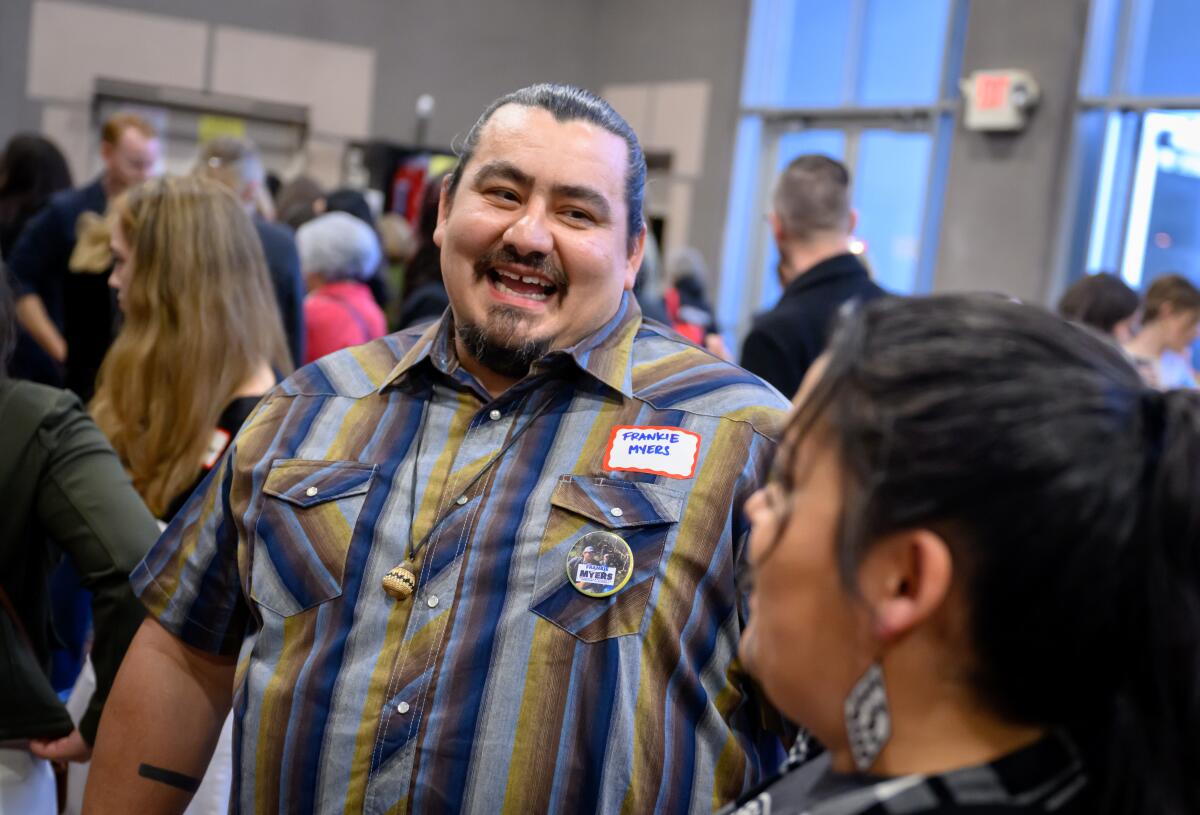
A fifth Democrat, Mendocino County Supervisor Ted Williams, hasn’t raised money and is using his campaign to encourage candidates to focus on rural issues. A sixth Democratic candidate, Cynthia Click, has withdrawn from the race, though her name will appear on the ballot.
Michael Greer, the one Republican running for the seat, has focused his campaign on bread-and-butter issues familiar to many California families, including public safety, the rising numbers of people living homeless and spiraling housing costs, along with North Coast-specific concerns similar to those raised by the other candidates.
“As one vote, as one Republican, can I change the votes on all these things?” Greer said of his potential effect in the Democratic-led Assembly. “No. But I can be loud enough to make sure that the rural areas are heard.”
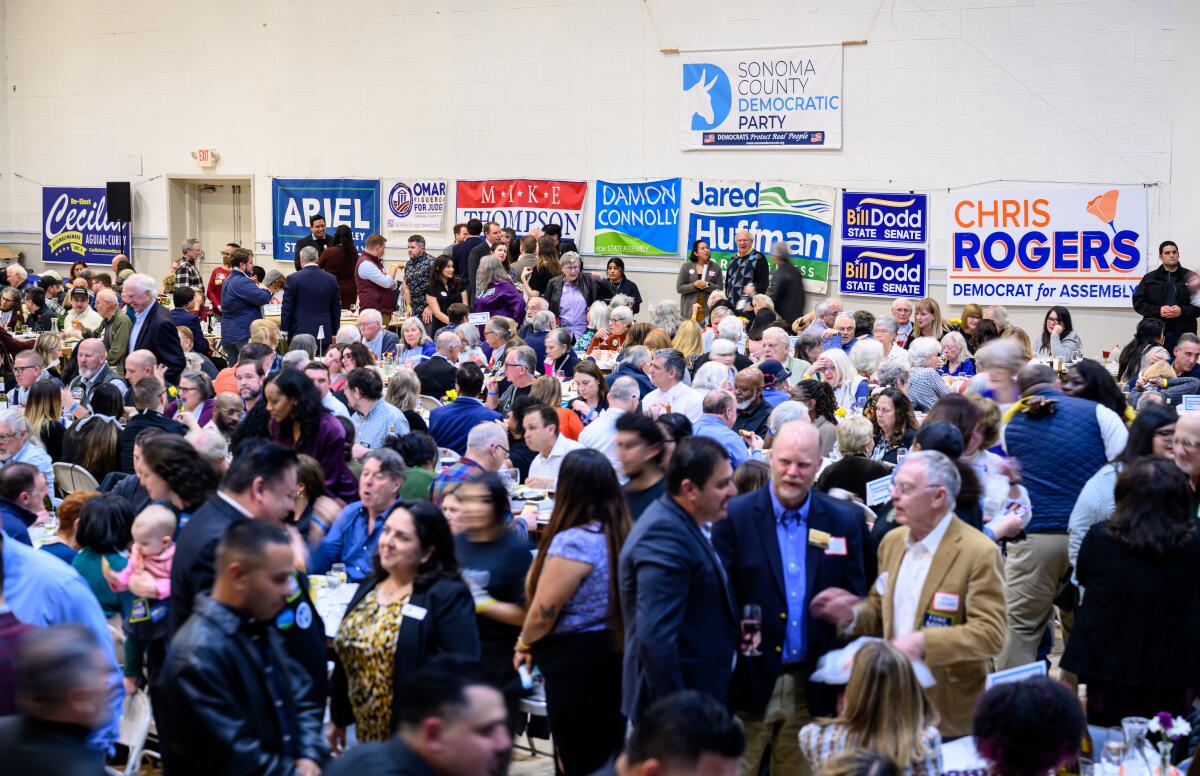
Wood said many of the candidates are using overly broad rhetoric to describe the district’s challenges and seem unfamiliar with the progress he’s made in addressing specific policy areas during his decade in Sacramento. The real challenge, he said, will be building on his successes to fine-tune those policies.
“It’s a hugely challenging district,” Wood said. “So you have to really commit to spending the time to learn it and to respect it to be able to help solve some of the problems that we face.”
Wood was quick to endorse Hicks’ bid for Assembly, saying he was confident the party chair would be a “workhorse” for the district.
“I respect anybody who wants to run here, but I think the depth and breadth of his experience and the things he’s done and his life experience make him the best candidate,” Wood said.
Wood noted, however, that he’s been surprised and disappointed by the negative campaigning.
“This is not what we’re used to on the North Coast,” he said. “I don’t like it, and I don’t think voters really like it either.”
More to Read
Sign up for Essential California
The most important California stories and recommendations in your inbox every morning.
You may occasionally receive promotional content from the Los Angeles Times.
